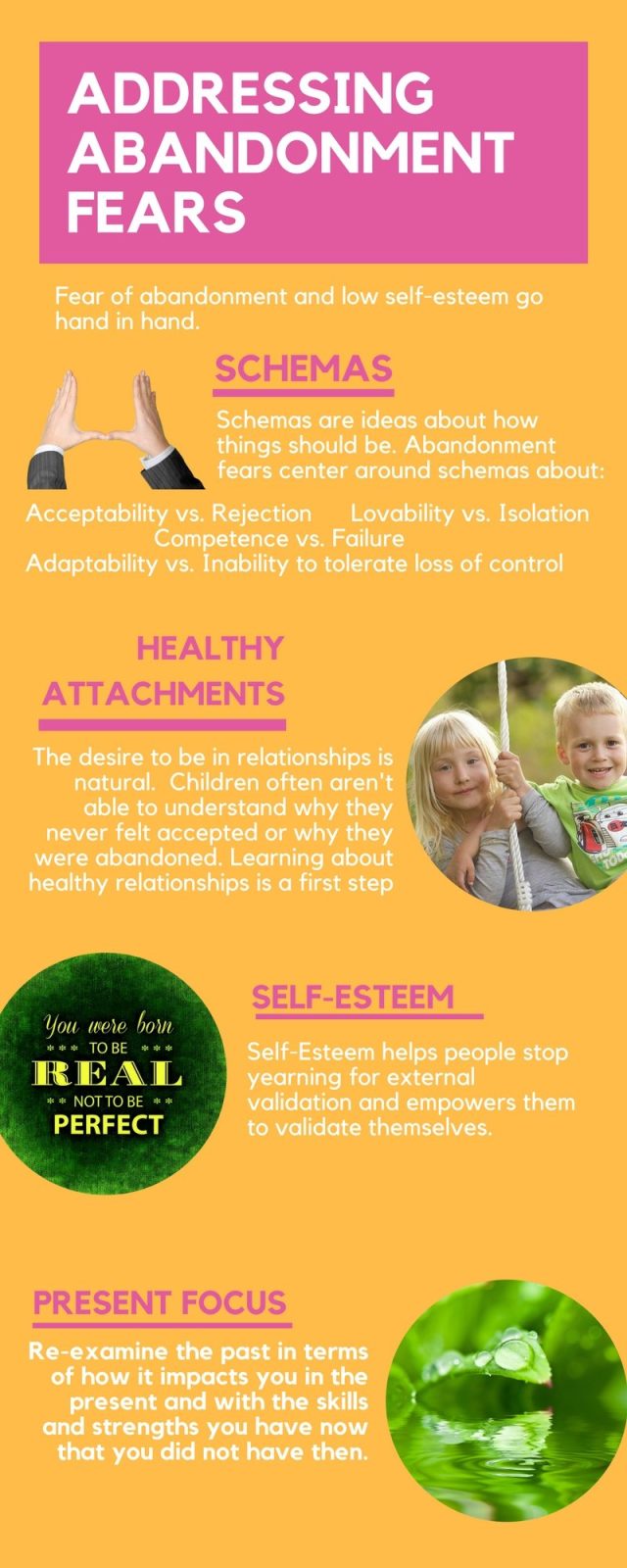

People with abandonment issues often feel depressed and anxious if they are not receiving validation from others on a nearly constant basis. They often are highly sensitive to to other people and are on high alert for anything that even seems like rejection. Learn why people develop abandonment issues, the effects of these issues and how to best deal with issues of abandonment to minimize distress and harm to current relationships.
In childhood, survival depends on caregivers. Fear of abandonment is a natural survival response, and meeting biological needs and feeling safe are key triggers for anxiety at any age. When focused on survival people cannot focus elsewhere. Every stressful situation becomes a crisis in the insecurely attached child.
Abandonment fears can be triggered in infancy/early childhood by caregivers who were away for long periods (Work, military, jail, choice, death), or been inconsistently or unpredictably physically or emotionally present due to emotional distress, addiction, or being ill equipped to deal with a child. In later childhood these fears can be triggered by a poor family fit, feeling like the “black-sheep,” or trauma that ruptures the relationship with the primary caregiver. These fears lead to the development of abandonment beliefs.
Core abandonment beliefs include: Abandonment: All people leave; Mistrust: People will hurt, reject, take advantage of me or just not be there when I need them; Emotional Deprivation: I don’t get the love I need. Nobody understands me, cares about me or even tries to meet my needs; Defectiveness: If people knew me, they would reject me; Failure. I don’t measure up. I am not able to succeed.
Once a child develops a fear of abandonment, several reactions are quite common: Fight or flight at the first sign of rejection, anger toward someone who is unavailable, sadness (helplessness) when someone goes away, and shame (self anger) about feeling needy. These feelings can turn into unhelpful responses such as frequent fighting (You don’t want to leave me because…); aggression, hostility, blaming, criticizing to try and gain a sense of control; recognition seeking to get attention/validation/approval; manipulation and exploitation (seduction, lying, justifying); making excuses for other’s inappropriate behavior; clinging and chasing; flight (I don’t care if you leave), or withdrawal (physical, emotional, including addiction).
To address these core beliefs and unhelpful reactions, people need to identify their behavioral and relationship/interpersonal triggers in the present, explore how these are “automatic” reactions based on prior experiences which may not have any basis in the current reality and learn skills such as mindfulness to help them make more realistic assessments of the present and choose more effective responses.
The presentation presents a myriad of questions to help people challenge these beliefs.
View the Counseling CEU course for this presentation.
This course is also included in our unlimited CEU packages.
